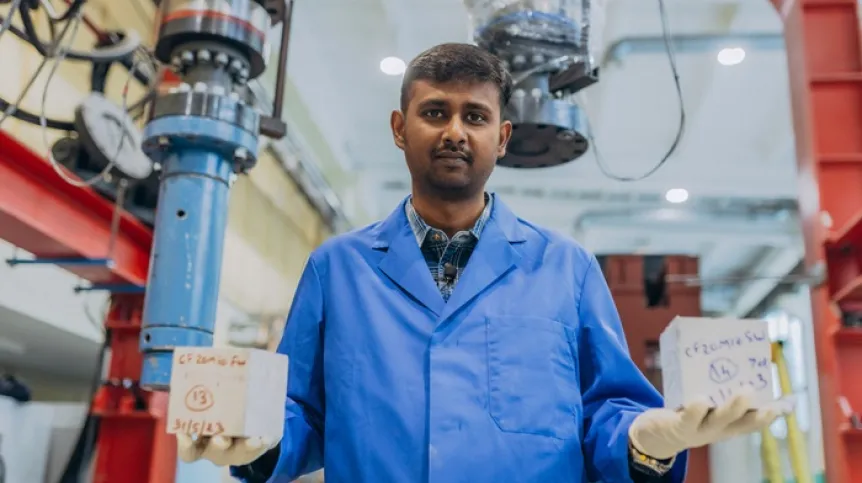
An international team of scientists has developed concrete made with seawater instead of fresh water. The results of their work may be especially useful in areas affected by water shortages.
The recipe for a concrete mix using seawater was developed by a team led by Dr. Paweł Sikora from the Faculty of Civil and Environmental Engineering, West Pomeranian University of Technology, as part of the international project 'NanoSeaCon', supervised by Dr. Sundar Rathnarajan, a graduate of the Indian Institute of Technology Madras (IIT Madras) in India. The partners were the Technical University of Berlin and Yonsei University in Seoul (South Korea).
The scientists wanted to create concrete without the addition of fresh water, which is in short supply in many parts of the world. According to Dr. Sikora, research on innovative concrete is intended to help primarily in areas affected by water deficits, such as the Middle East, India, and African countries.
It took over two years to develop the solution, and the resulting seawater concrete has the same parameters as the conventional material. According to the university's press release, 'the use of seawater makes it possible to accelerate the concrete maturation process, due to which in some situations it has even better properties than conventional concrete'.

The press release adds that scientists did not conduct research using water from the Baltic Sea because it was 'not salty enough'. They used 'seawater' specially prepared in the laboratory. It contains an average number of ingredients that reflects seawater in global waters.
Scientists developed a durable low-emission material (containing a high content of mineral additives as a cement substitute) without losing the properties of concrete, because seawater 'compensated' for the losses. 'Reducing the amount of cement naturally slows down the development of strength, but the use of seawater allows to compensate for these losses through the interaction of the ingredients', Dr. Sikora says.

Adding construction waste to the mixture helped to neutralize its 'saltiness' and block potential corrosion. This is important at the time of contact with reinforcing steel. 'Replacing cement with an appropriate combination of additives (which are most often waste or post-process materials) allows us to produce concrete that is able to +trap+ seawater chlorides in concrete and neutralize them', says Dr. Sikora. He adds that 'as a result, reinforcing steel in concrete will not corrode'.
The results of the scientists' work are already known internationally. 'We were invited to join the founding group of the newly established committee of the American Concrete Institute (ACI)', Dr. Sikora says. The Committee will develop the first international guidelines for designing concrete mixtures containing seawater.
The project was carried out in cooperation with the Szczecin-based company Laboratorium Budowlano-Drogowe BETOTEST, where Dr. Rathnarajan completed a month-long internship as part of the project. (PAP)
amk/ zan/ kap/
tr. RL













